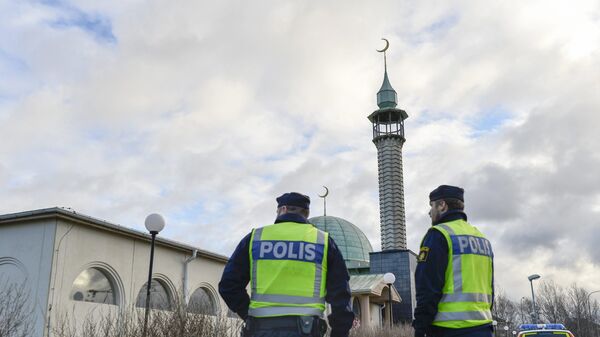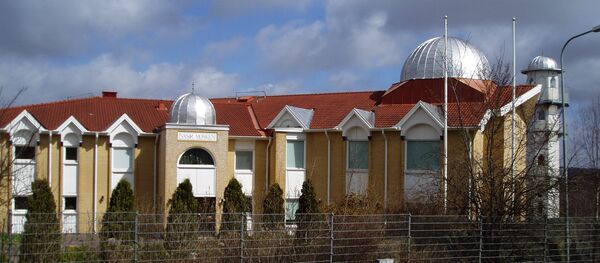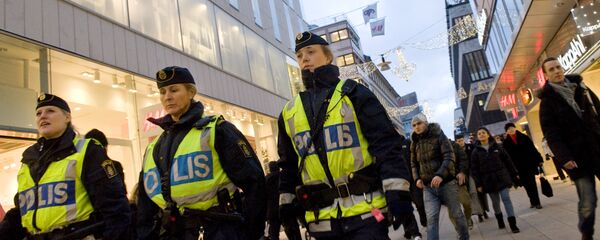The number of radical Islamist and jihadi sympathizers in Sweden has reported to have jumped from hundreds to thousands, a rise which Swedish Security Service (SÄPO) boss Anders Thornberg himself called "enormous." Earlier this year, the number of violent Islamist extremists was identified as "slightly over 2,000," which is a tenfold increase compared with 2010, when their number was reported as being "about 200."
Anders Thornberg described the individuals as "frequenting the circles where the idea of an Islamist Caliphate is supported," adding that they were not necessarily plotting a terrorist attack, but rather helped with money and logistics.
"The constant increase is troublesome for us in the security services as it means we need to keep an eye on even more individuals. All the good forces in our country must receive help to ensure that no more people become involved in such dangerous and destructive activities," Anders Thornberg told Swedish national broadcaster SVT.
For officer Hellqvist, who has been with SÄPO for over 30 years and done a lot of "field work" on the prevention of radicalization, parallel societies and so-called exclusion areas outside the reach of Swedish law are the main driving forces behind crime, violent Islamism and eventually even terrorism in society. According to Hellqvist, there is a power struggle between the Swedish authorities and parallel structures in the suburbs, SVT reported.
According to Hellqvist, Swedish politicians and authorities have not done enough to stop this development and Islamic radicalization, which he ascribed to the fear of being branded racists.
"Perhaps they have ducked this issue for fear of being labeled in an exchange about xenophobia or Islamophobia," PO Hellqvist told SVT.
The Vivalla district in the city of Örebro has been previously identified as a particularly nefarious hotbed of Islamism. Vivalla alone, where 75 percent of the population in 2012 had a foreign background, produced about 20 jihadists who went to the Middle East. After Daesh's devastating losses in Iraq and Syria, however, some of them have returned to Sweden, with more reportedly on their way. About a dozen of former jihadist have been reported to have "re-established themselves" in society.
"Some are in training or have standby jobs. Someone has a permanent job. Some have a family. So it's different things, you know," Vivalla police Fredrik Malm told SVT, adding that one has been convicted of abuse and another one is suspected of fraud.
In related problems, the suspected financing of terrorism has also risen dramatically in the Nordic country. In 2014, only 27 cases of suspected terrorist financing were reported to Swedish authorities. In 2016, the figure increased more than tenfold to 298 cases and is still rising. During the first six months of 2017 alone, 279 cases of suspected terrorist financing were reported, according to Swedish Radio.





